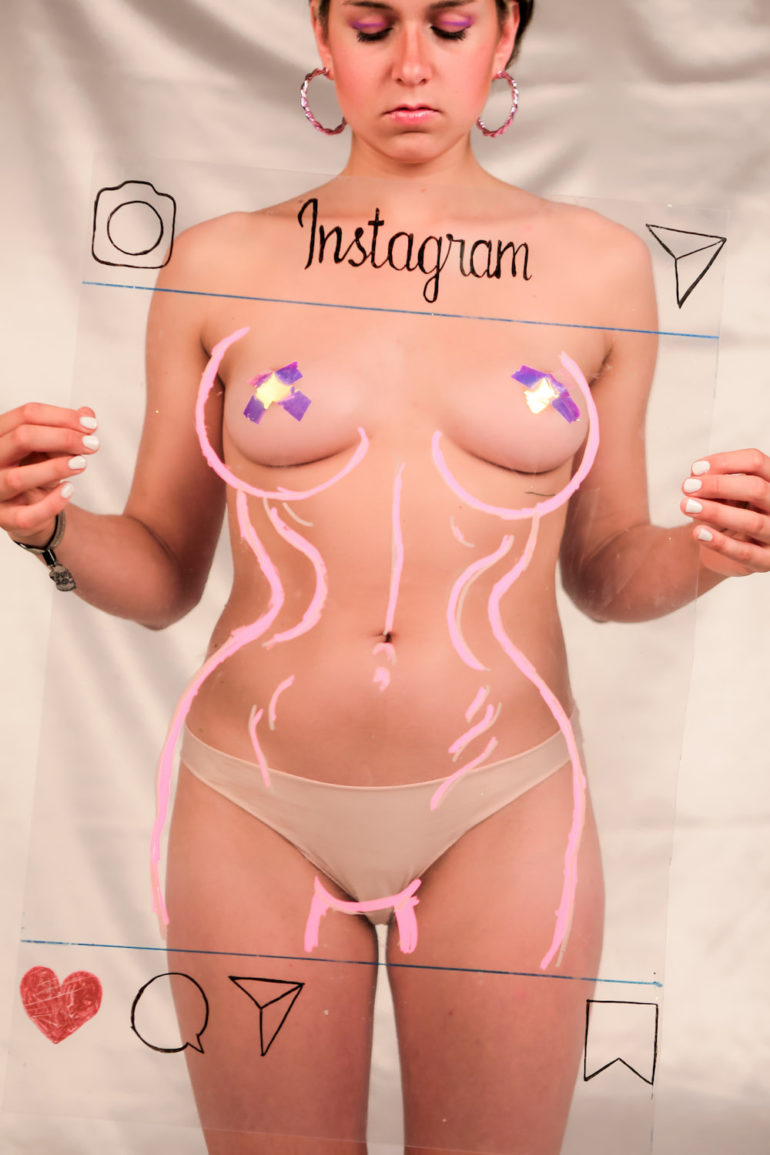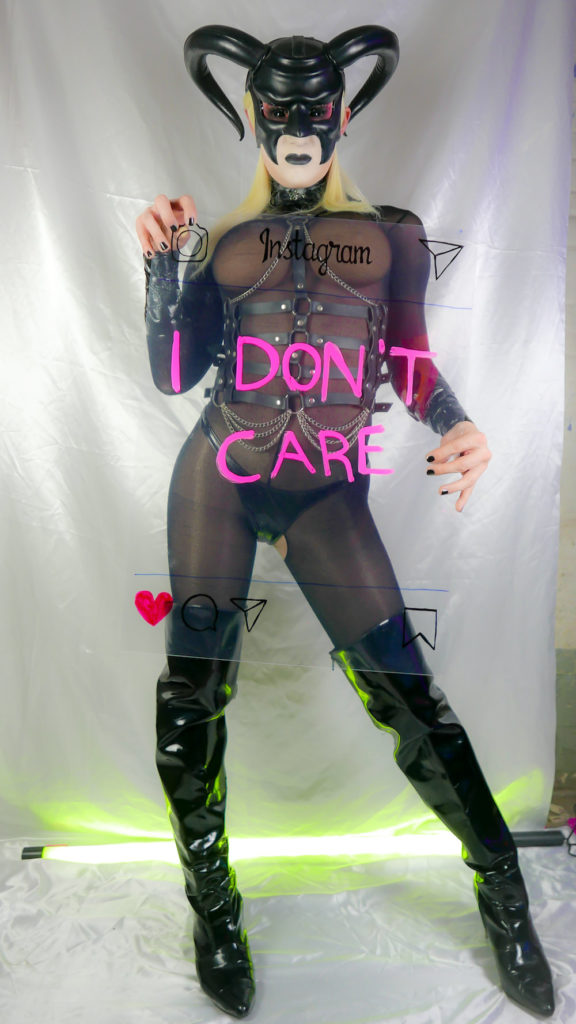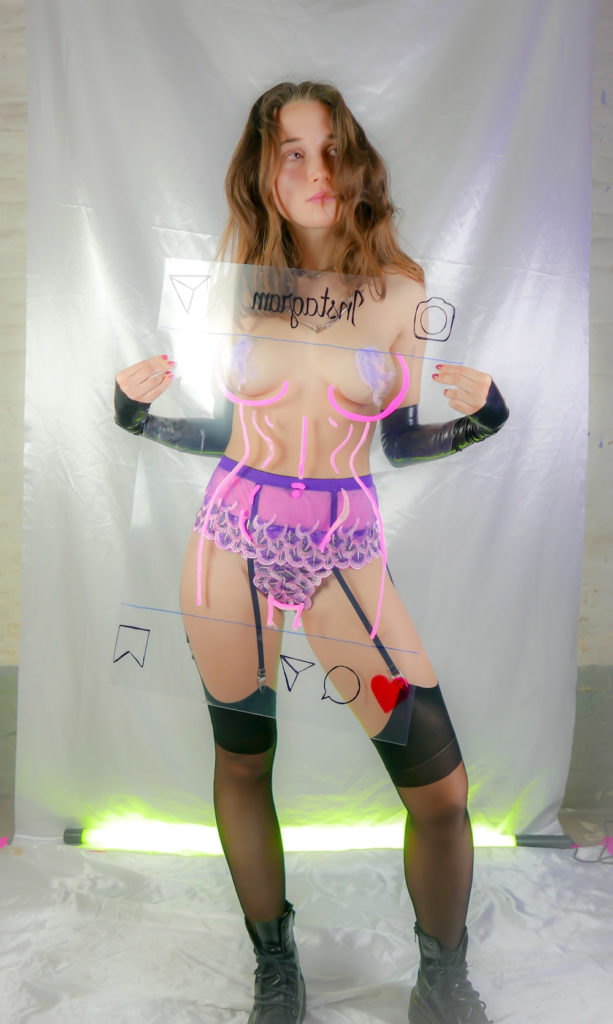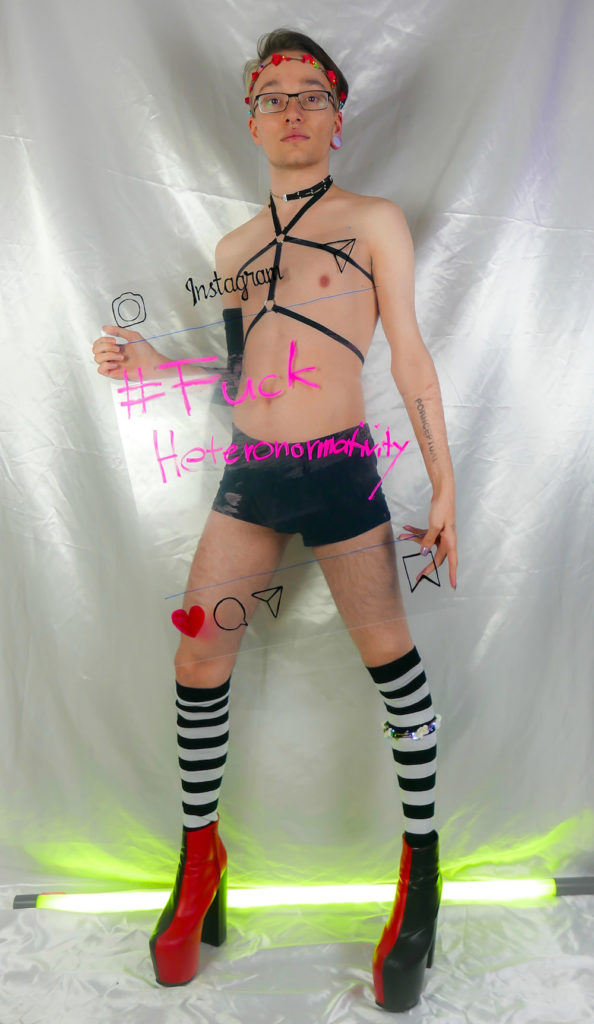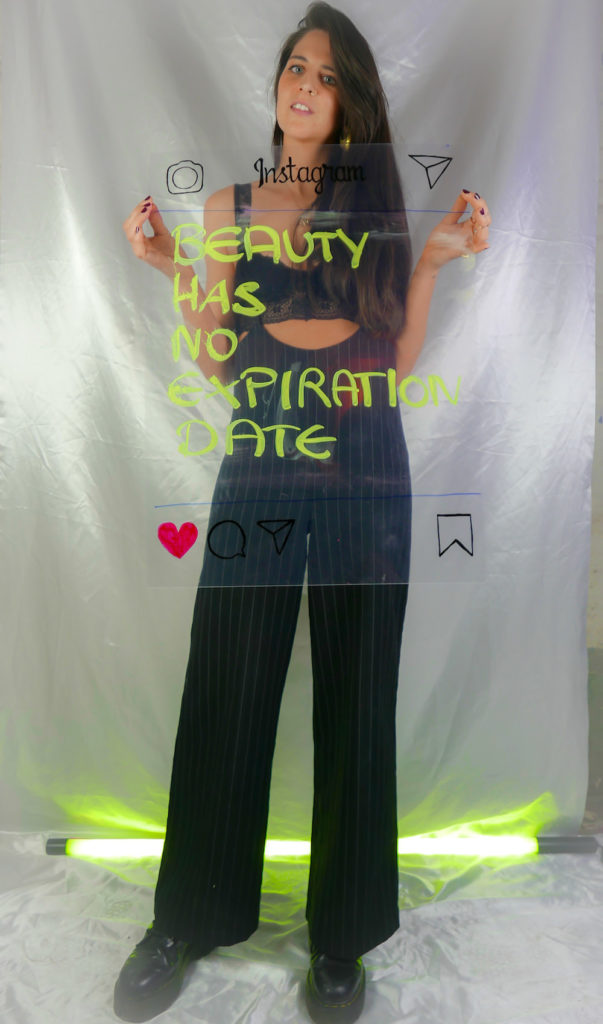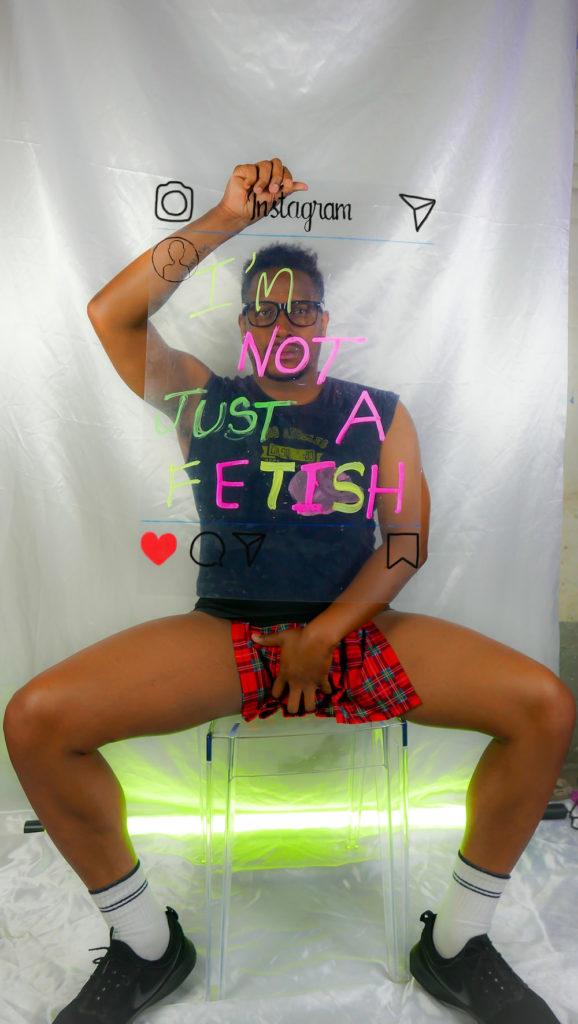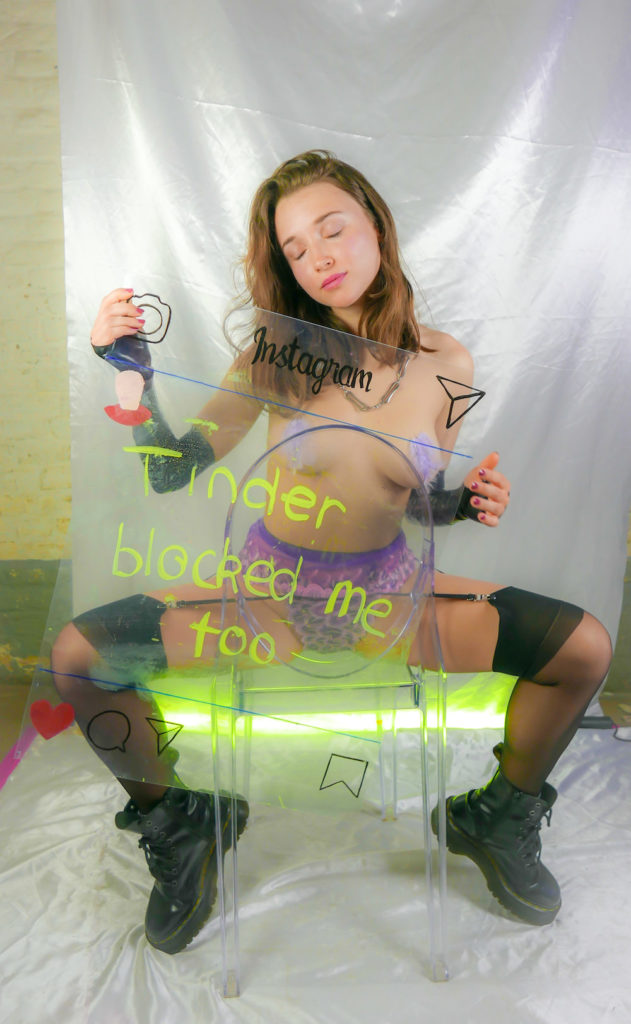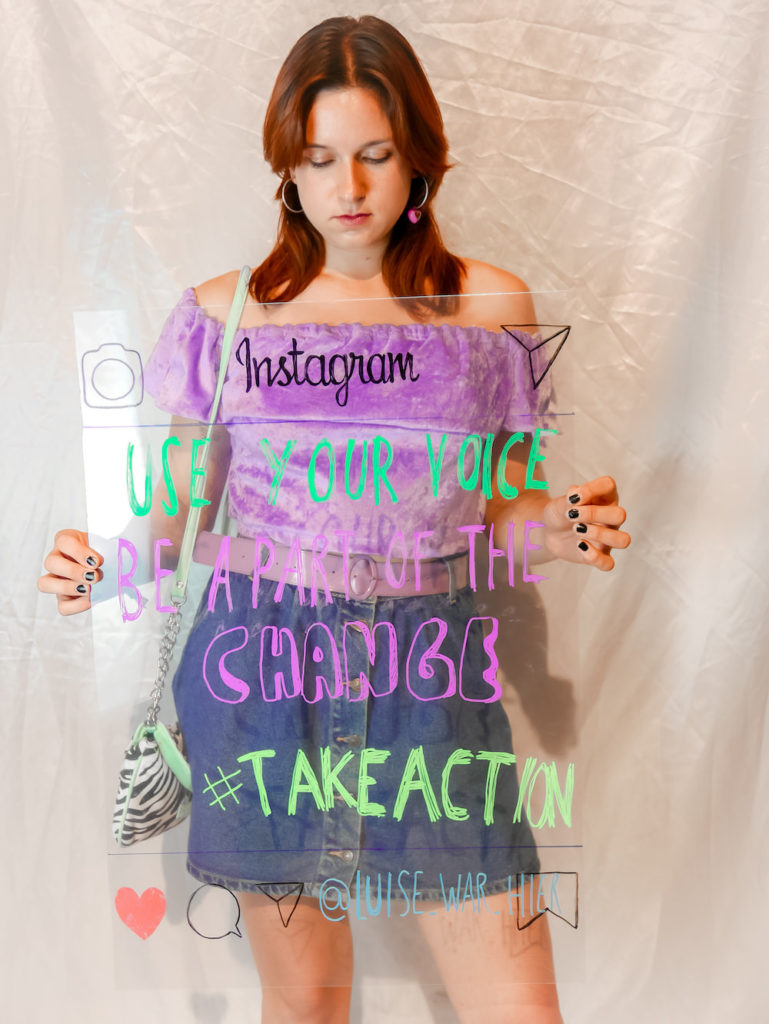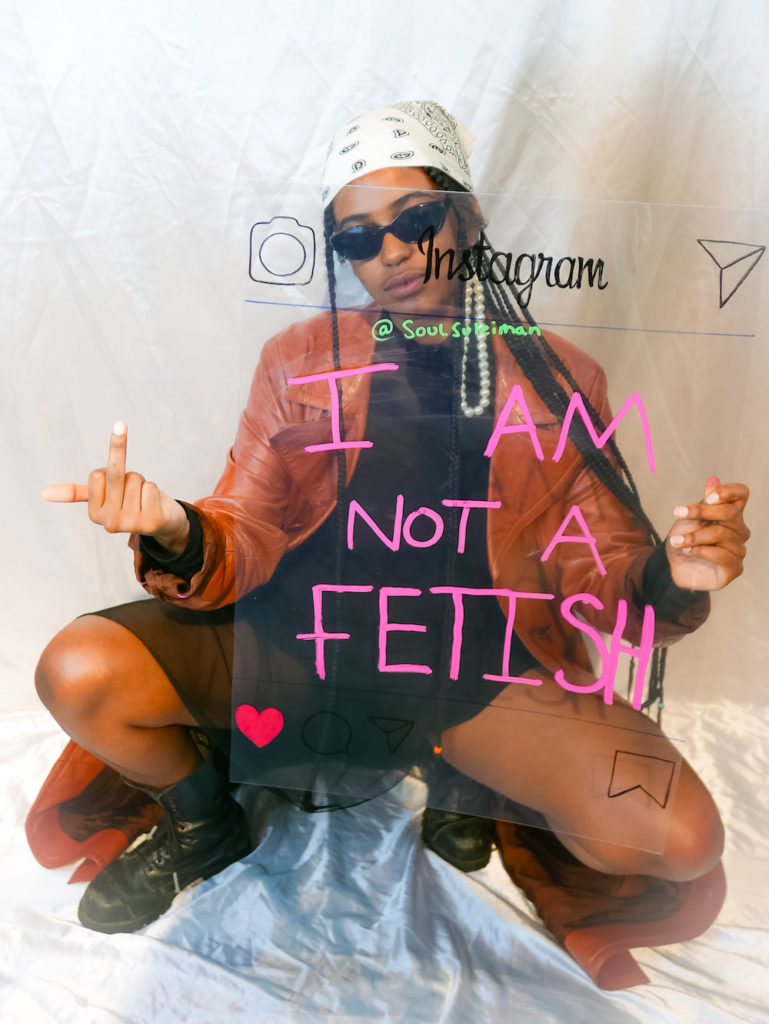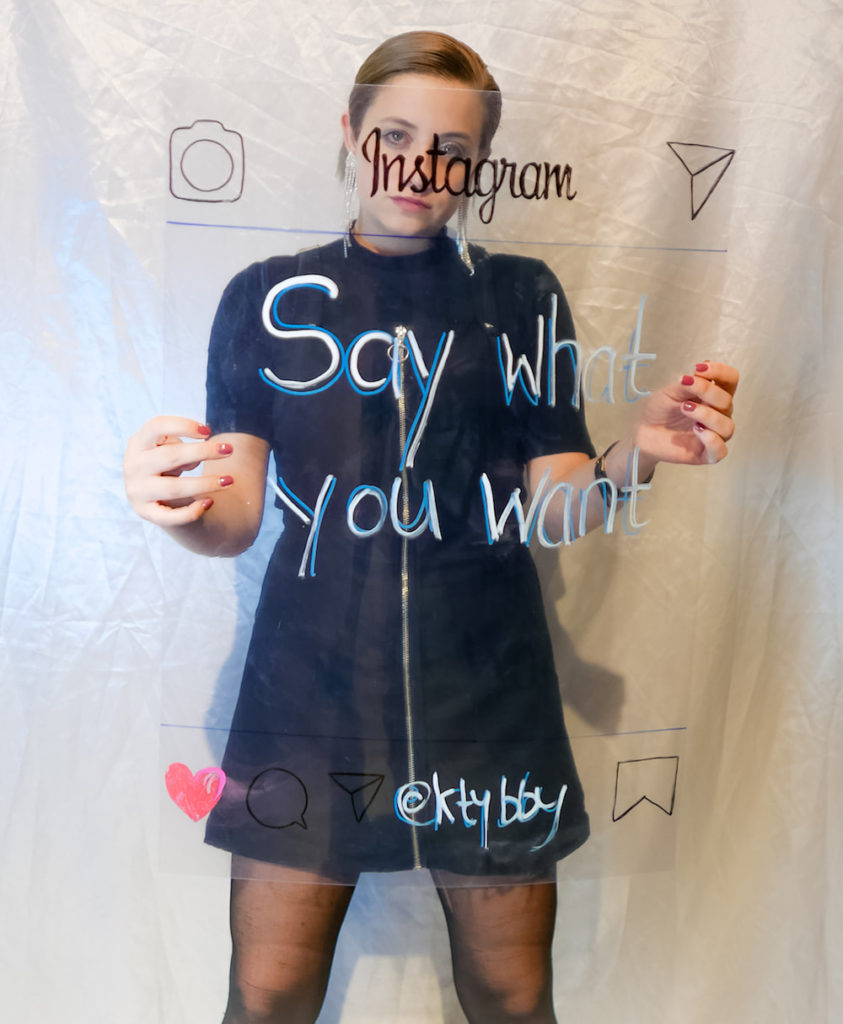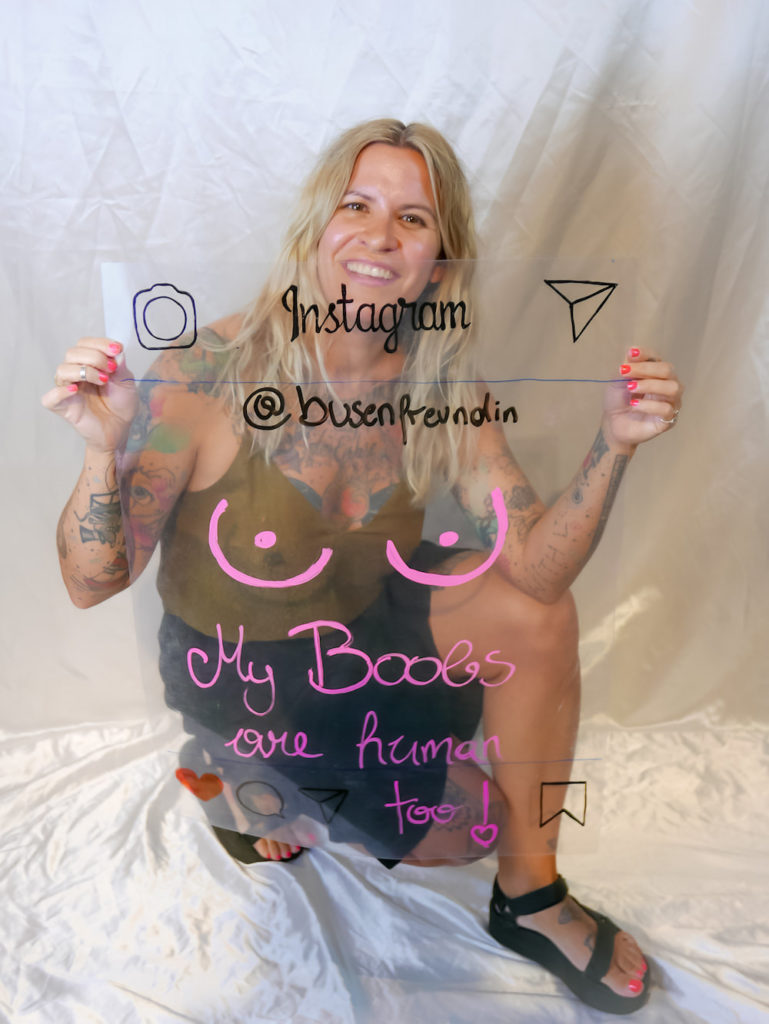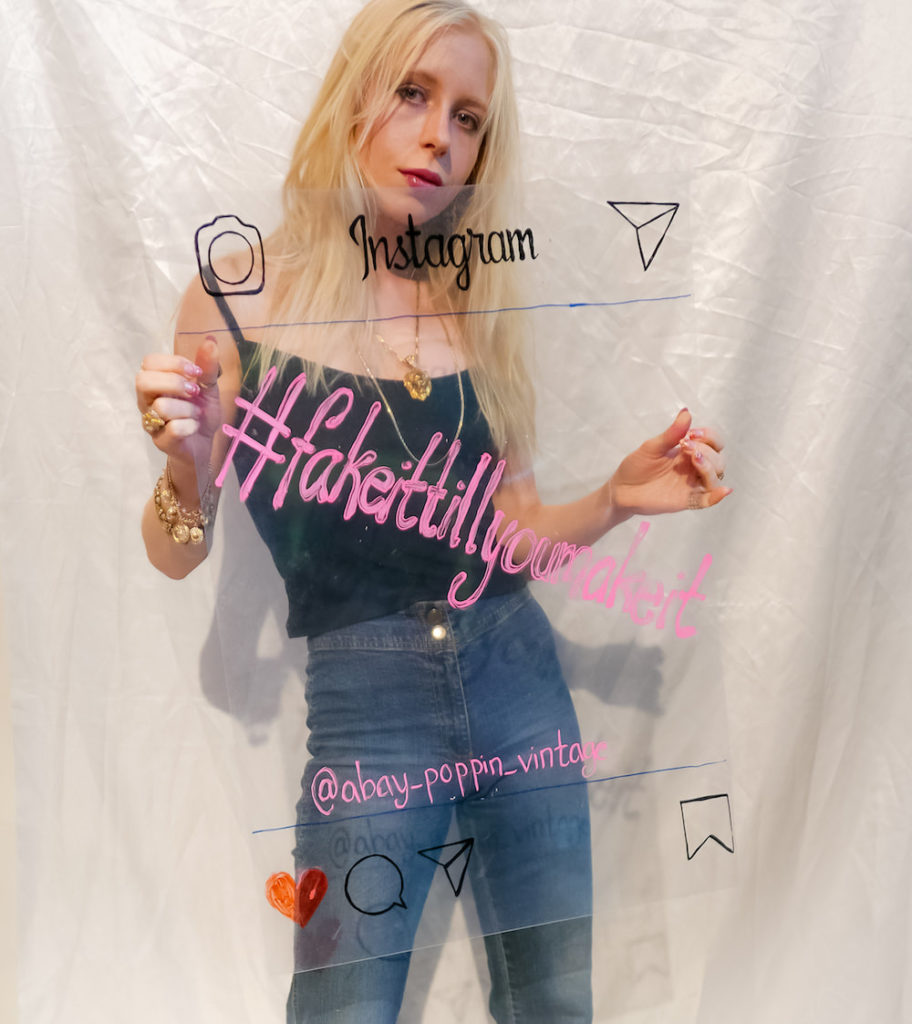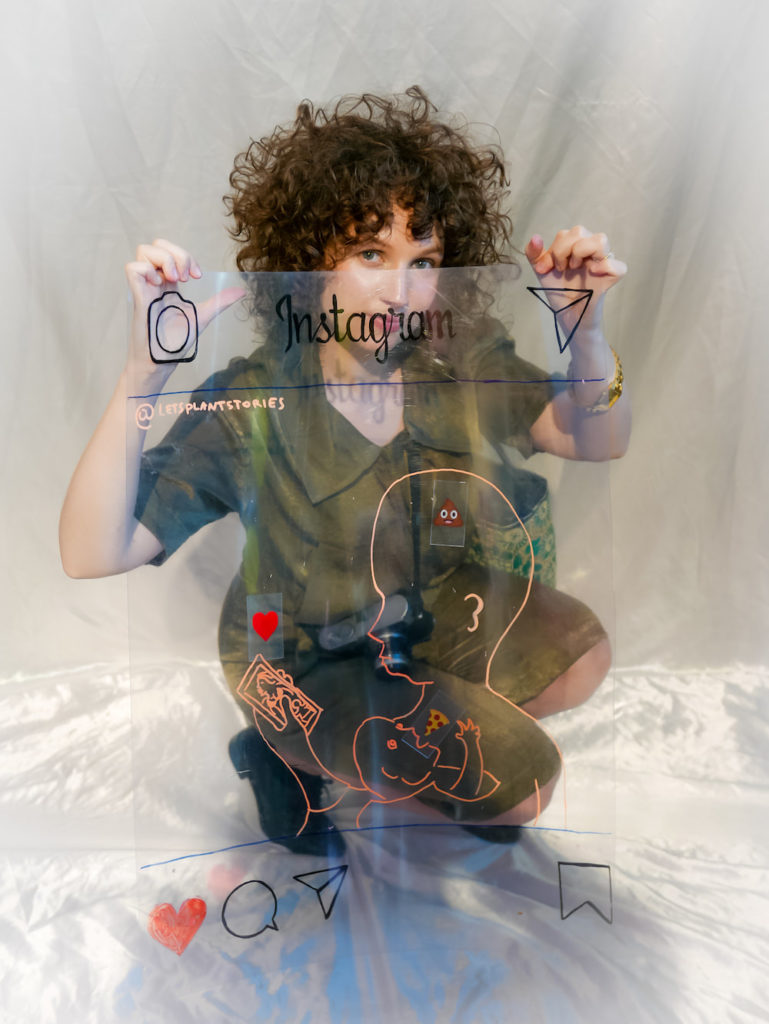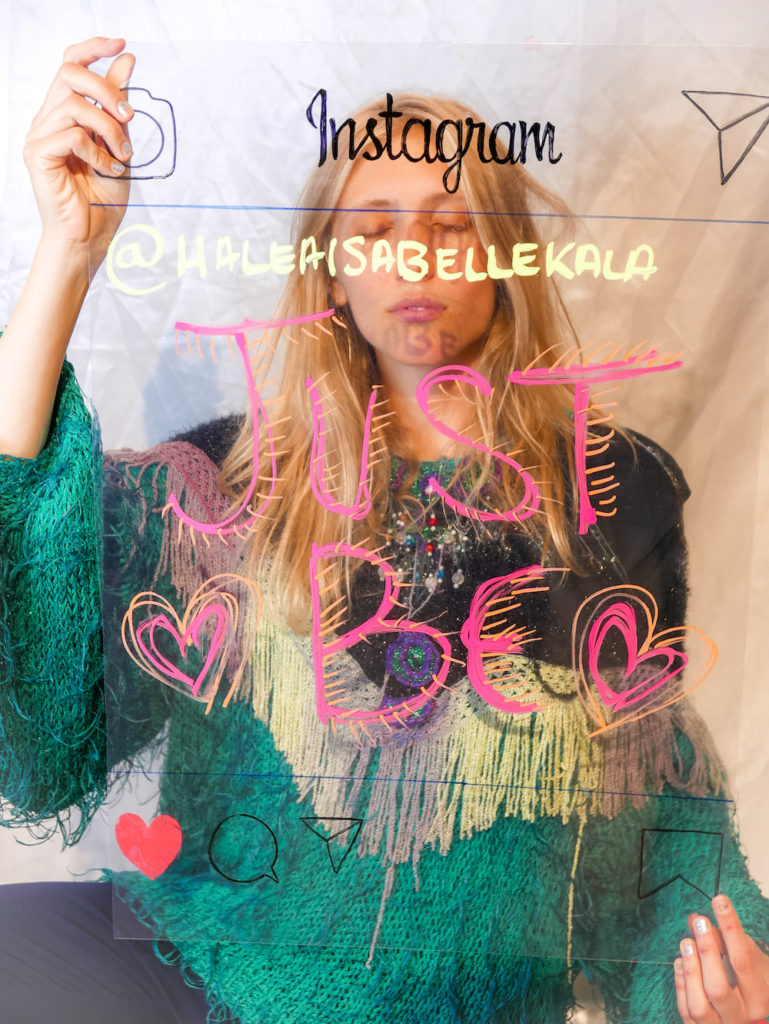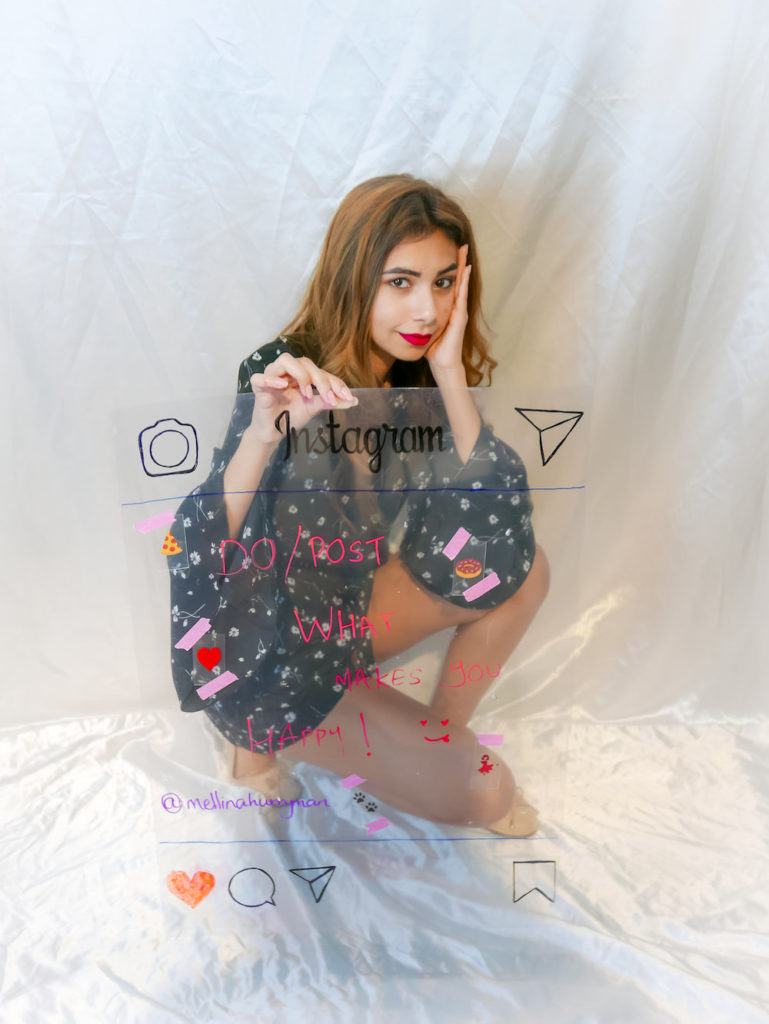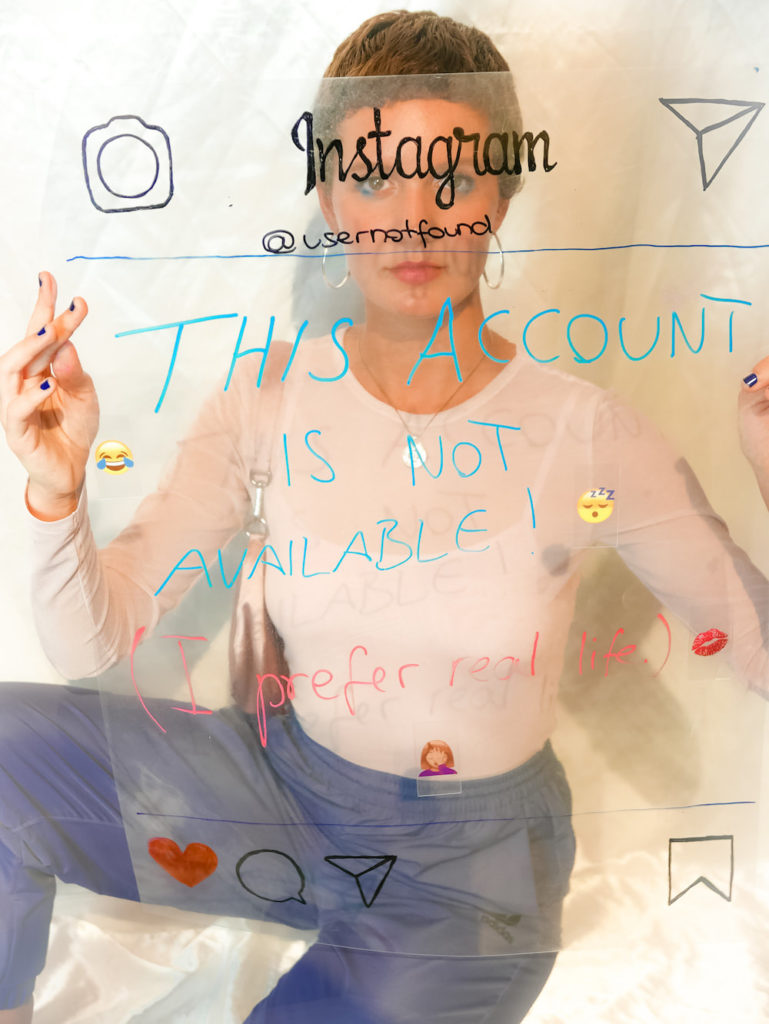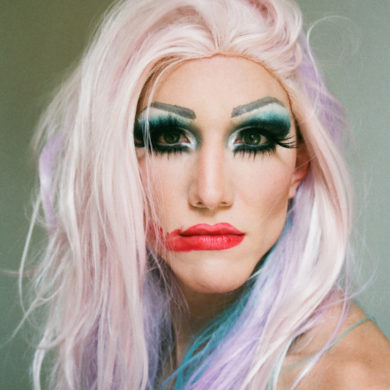Sophie Steiner is a young Berlin-based artist currently studying gender studies at Humboldt University. Her ongoing project “Behind The Surface” became an online sensation and aims to show what the life behind the screen really is like for most of us, and the impact of beauty standards on our mental health.
Her project developed into an interactive IRL installation, in order to give a voice to everybody who feels marginalized and repressed by our society and through social media. Read our interview with Sophie Steiner to learn more about her and this project.
Tell us about your background: When did you first get into art?
Since I’m little I’ve been drawing and doing „artsy“ stuff. During difficult times in my personal life, like the divorce of my parents, art gave me access to another world – Through creativity I could escape in my own fantasy world where I could be whoever and do whatever I wanted to. Since I can think, I have been interested in people’s personal life stories, their behavior, their emotions, feelings, and i was especially inspired by people who were called “abnormal” in our society.
How does Berlin influence your work?
Berlin gave me that freedom I needed so badly to finally develop into the person I am now. I’m from a very small town in the south of Germany where I always felt limited to express myself not only visually, but also in my ways of thinking and acting. I was always afraid of people’s opinion of me, as I felt quite different from other poeple around me. I’m quite introverted, and I don´t like to put a spot on myself, so in order to get no attention from people in my personal environment, I had to hide my true self. If you always have to hide your true self in order to fulfill the normative stereotype you will never really be happy. So since I’m little I knew that I had to move to a bigger city where I could have the freedom to be the person I really am without the social constraint. Berlin gave me exactly that freedom.
“my project is not only about Beauty standards. It is rather interdisciplinary and deals with everything and everybody who feels marginalized and repressed by our society and therefore also through social media. Everyone should get a voice in my project and be heard that way.“
You decided to study Gender instead of Art, why did you make that decision?
I moved to Berlin hoping to study art. But the first couple of months in Berlin I had to deal with many setbacks. Despite many applications and much effort, I was rejected by almost every art school. I had so little self-esteem that I was thinking about cutting art completely until a major event happened: I was showing an art teacher my work about the female period and I can still remember this 40 years old white male so embarrassed by my artwork, exclaiming. “Oh that’s so gross”. I then realized that my art wasn’t the issue but the problem was more located in our society. Since that day, my interest in gender has grown and I decided to take “gender studies” instead of Art. I’m really happy about my decision because now I see the world from a different angle. I’m able to connect my personal experience in my daily life with the scientific knowledge I get from the university. It basically gives me a new way of thinking not only on gender but also on everything else, because everything is connected. It also made me realize on a scientific level, how fucked up our society is, and how much we still have to do!
Tell us about your ongoing project “Behind the Surface”. What is it about and what prompted you to start it?
It developed out of my personal experiences and feelings. I had always an unhealthy relationship with my body. I’ve been counting calories and working hard on my body just to look like one of these famous girls you see all over Instagram. I talked to many friends about it and mostly they all had the same issues as me, but were all so embarrassed to talk about it. There was that moment when I realized that I’m obviously not the only one on the planet with this feeling. I thought: How come most of us think we have to change something about ourselves, in order to feel beautiful? Through social media the pressure to meet the beauty ideal is increased, as we are constantly confronted with it.
There was also that critic from the art teacher, i mentioned before, which led me to see what is wrong in our society. All this made me really angry and therefore I’v́e started the series with the support of a couple of friends and my sister.
I took pictures with the plexi screen and asked them how they feel about censorship, Instagram and the body. It was never planned as something ambitious or as big as it has become now. When Curated by Girls published the series, I never expected such great feedback, and I was so surprised of how big the impact actually was. Suddenly I received so many kind messages from people all over the world, telling me how they appreciated my work and that it really empowered and encouraged them about their self-confidence.
Since the social norms of society are reflected in the digital world, my project is not only about Beauty standards. It is rather interdisciplinary and deals with everything and everybody who feels marginalized and repressed by our society and therefore also through social media. Everyone should get a voice in my project and be heard that way.
“we need more diversity in our society. We have to break the norms of heteronormativity, beauty standards and the two binary system in order to get space for everyone!!!”
How does the digital world affect your personal life?
My digital life has a big impact on my art. My Instagram Account is a platform where I can show my art for free and reach many people which I normally wouldn´t do in real life. So it really helped me get some attention as an artist. On the other hand I try to spend just a limited time on Insta. I try not to watch stories from people i don’t know, or some seemingly „important Insta influencers“. That’s for me a good way to deal with the digital world, so that it doesn’t affect me too much my mental health.
How do you manage to be strong in a society that constantly drives you towards self-doubt?
When I’m not in a good mood, I try to avoid social media, and I will only follow accounts which give me a positive feeling about myself. I will prioritize meeting or calling a good friend/ sister, someone I can talk to. I also take some „recovery“ time for the well being of my mind and body. Luckily I´ve found some rituals that help me against stress and pressure of the everyday life: The first thing I´m doing when I wake up is to drink a big glass of lemon and Curcuma water, and i do yoga practice every morning. It clears up my mind, and gives me a good start in the day. Everyone should try it!
How has your project grown since you started it?
My project started, as I mentioned above, rather accidentally. I had never expected such big feedback when it was released. But I think a lot of people could identify with my art and that’s simply why the feedback was so great.
What would you like to achieve with your project?
My wish is that more and more people can participate and spread the message so that it can reach more people. I want to give people the feeling that they are not alone with their thoughts and feelings. I know out of self-experience that it’s really helpful to know that many people struggle with the same issues.
I want to show real beauty in contrast to the normative beauty, gender and body standards you see all over Instagram. Just because we are surrounded by these pictures 24h/7 we become isolated and start to think that there is a specific body or sexual norm, but there truly isn’t́.
We don’t́ easily speak about these issues because we are taught they are „unpleasant“ and not accepted by society. The media has tried to create stereotypes which are all uniform! But we need more diversity in our society. we have to break the norms of heteronormativity, beauty standards and the two binary system in order to get space for everyone!!!
http://www.stonersisterz.com/
More of Sophie Steiner


